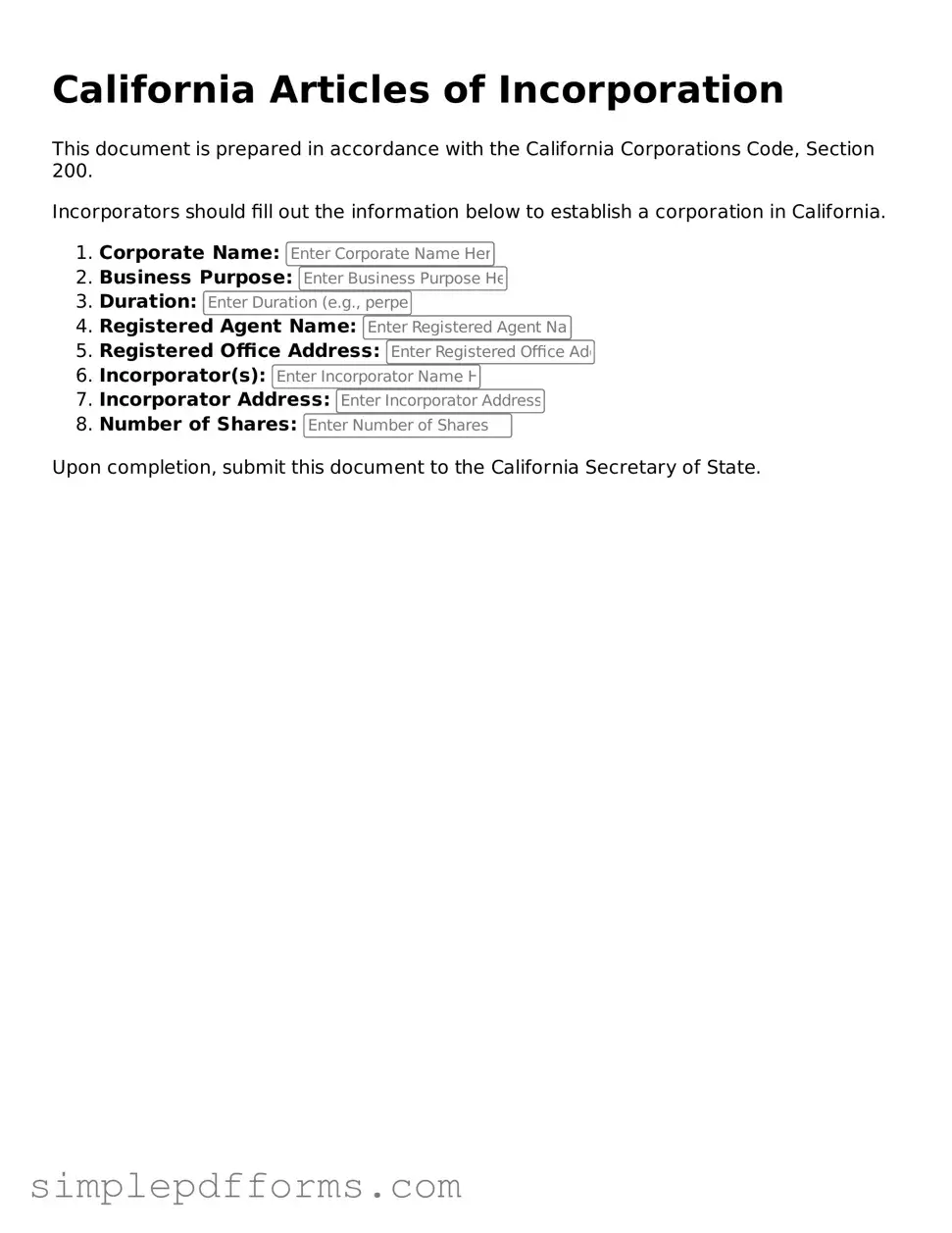Attorney-Verified Articles of Incorporation Document for California State
The California Articles of Incorporation form is a legal document required to establish a corporation in the state of California. This form outlines essential information about the corporation, including its name, purpose, and the details of its initial directors. Completing and filing this document is a crucial first step for anyone looking to create a business entity in California.
Open Articles of Incorporation Editor Now

Attorney-Verified Articles of Incorporation Document for California State
Open Articles of Incorporation Editor Now

Open Articles of Incorporation Editor Now
or
Get Articles of Incorporation PDF Form
Your form is waiting for completion
Complete Articles of Incorporation online in minutes with ease.